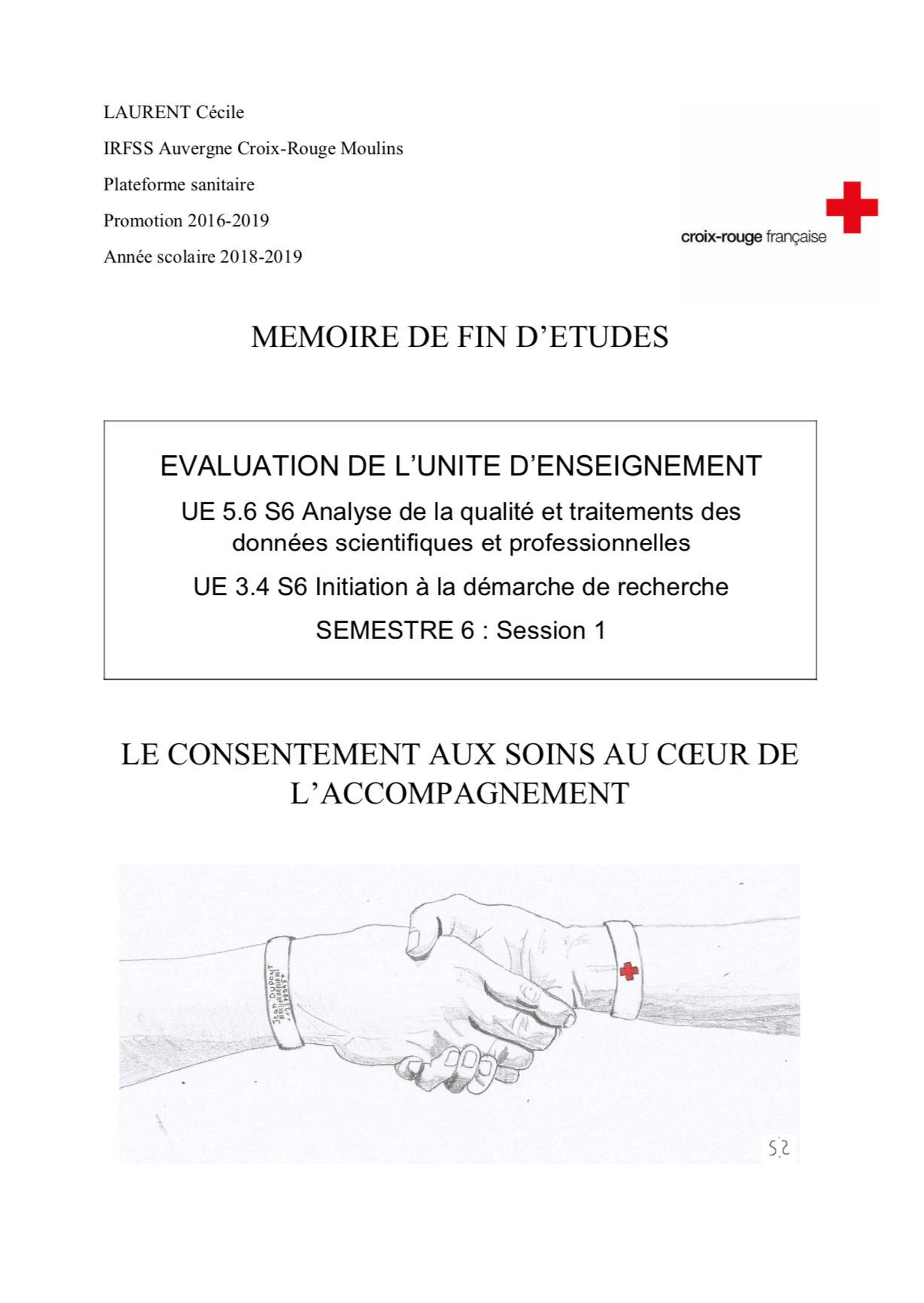Le consentement aux soins au coeur de l’accompagnement

Résumé:
L’auteure de ce mémoire de fin d’étude a voulu mettre en avant le droit du consentement des patients dans les soins. Pour mener à bien ce travail, elle a décidé d’exclure de sa recherche les patients présentant un trouble cognitif pouvant avoir des conséquences sur le consentement et les personnes sous obligations de soins. L’auteure a menée des entretiens semi-directifs auprès de trois infirmières et deux étudiantes infirmières.
Dans ce travail, l’auteure a voulu expliquer les étapes nécessaires pour que le consentement soit libre et éclairé. Ces étapes impliquent le travail de l’équipe soignante, notamment celle des infirmières. Ces différentes phases sont l’accompagnement et la négociation. Avec l’accompagnement découle les concepts d’autonomie et de responsabilité. Et avec la négociation, découle les concepts de communication verbale, communication non verbale et de relation de confiance entre le soignant et le soigné.
Après avoir mené à bien les entretiens, l’auteure a mis en parallèle les apports théoriques recherchés précédemment, avec les apports de la pratique du métier d’infirmier et de la place que ces derniers font au consentement lors des soins. Finalement, des similitudes et des divergences font leur apparition.
Mots clés: consentement, accompagnement, autonomie, négociation, soins, infirmier, patient
Abstract:
The author of this final thesis wanted to highlight the right of consent of patients in care. To carry out this work, she decided to exclude from her researh patents with a cognitive disorder that could have consequences for the consent and the persons with care obligations. The author conducted semi-structured interviews with three nurses ans two nursing students.
In this work, the author wanted to explain the necessary steps to make the consent free and clear. These steps involve the work of the health care team, including the nurses. These different steps are accompaniment and negociation. With accompaniment, the concepts of autonomy and responsability emerge. And with negotiation, the concepts of verbal communication, nonverbal communication and the relationship of trust between the health care team and the patient.
After completing the interviews, the author compared the theoretical contributions previously sought with the contributions of the practice oh the nursing profession and the place they make to consent during care. Finally, similarities and divergences appear.
Key words: consent, accompaniment, autonomy, negociation, care, nurse, patient

